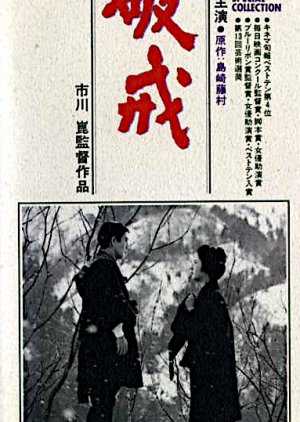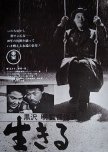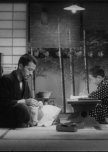
"My ammunition is my speech"
Apostasy was a muddled criticism of the caste system in Japan set in the early 1900’s. I learned some new things about the feudal system and their utter disregard for the burakumin. The burakumin were social outcasts due to their jobs that related to uncleanliness and death. Fascinating how eating butchered meat is okay, butchering the meat makes you less than. Everyone wants their dearly departed loved ones taken care of, but undertakers were less than. Segawa was a young teacher who came from the burakumin caste who was sworn to silence by his father so that he could live a normal life.Kazama, an older teacher from the samurai caste is forced to resign months before he could retire and collect his pension. Young progressive teachers Segawa and Tsuchiya attempt to argue his case with the principal but are promptly shut down. The principal’s “modern” nephew is hired to take Kazama’s place. Inoko, a burakumin who has come out and is leading the charge for equal rights for outcasts is constantly threatened. He is looking for a successor and hopes Segawa will take his place. Segawa is in love with Kazama’s daughter Oshiho, but afraid to push forward as she is from a higher class and he is secretly an outcast and terrified of being found out.
In older Japanese films, it is usually a solid rule of thumb that the good guys/girls are dressed in traditional clothes, while the bad guys/girls are dressed in Western style clothes. While Segawa and Tsuchiya were progressive in their ideas, they wore traditional clothes. The principal and immoral nephew wore suits. The lower middle class that had taken over the school board in this time of change drove out the samurai for financial reasons. They were just following “the rules.” The once ruling class was initially shown sympathetically. Yet those whose standings were raised were oppressively prejudiced against the outcasts and unwilling for them to have the same chances opened up to themselves. It was the same game, just different players with the marginalized still suffering the most. The outcasts were refused medical care and told they were not welcome even in small backwater towns. When one burakumin was murdered it wasn’t seen as a crime. The film also alluded that it would be these new people stepping into the power structure that would support the militaristic ideas that led to WWII. And of course, this film was largely dealing with men’s ability to have access to better opportunities. If Oshiho had told Segawa she wanted to train to be a doctor, he’d have thought she was out of her damn mind.
Segawa should have been the focal point of sympathy but he behaved so emotionally and at times cowardly that it was hard to relate to him. He was surely torn between his father’s mandate to keep his heritage secret and his mentor’s mandate that only by stepping into the light and demanding equality could the outcasts ever lead normal lives. Examples of abusive behavior toward the outcasts was often shown and Segawa who lived a respectable life did not want to be run out of town or beaten to death. Part of the disconnect for me was Ikebe Ryo’s performance which was overwrought, bordering on hysterical, even by 1940’s standards.
Apostasy was an example of people not wanting to give up power and refusing to share it. A stalwart attitude of total collectivism with certain people relegated to the bottom was difficult to shake up. Old superstitions and pecking orders did not give way easily to egalitarianism. This rigid way of thinking still plagues societies today, marginalized people who harm no one are forced to stay on the outside of society for no better reasons than what was portrayed here. Stepping forward and demanding equality is a daily and dangerous business.
“If you still look down on villagers or honor the samurai or the noble, you are still bound to the feudal way of thinking.”
25 November 2024
Vond je deze recentie nuttig?
























